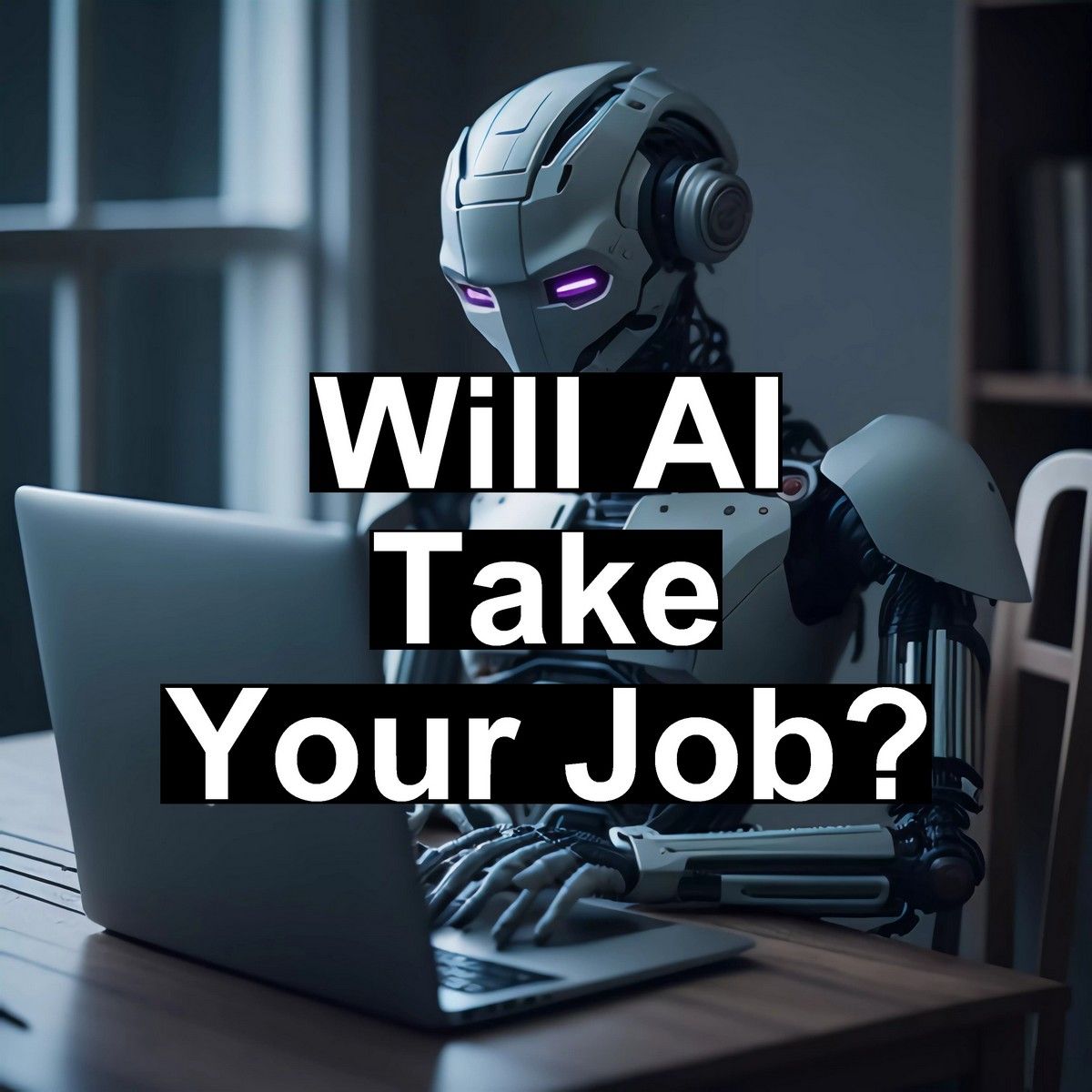Ep9 - Will AI Take your Job?

Recently, artificial intelligence has made tremendous strides. The impact of this technology on our societies is enormous, and many wonder: will AI take our jobs?
Almost all analyses we have examined are cautious. The common thesis is clear: technological progress has destroyed many jobs, but it has also created new ones. Or, jobs haven’t disappeared but evolved, adopting increasingly sophisticated tools. So, if innovation hasn’t eliminated human work until now, why would it start doing so now? In other words, artificial intelligence is just another technology. And, as always, evolution will occur, but human work will not vanish.
According to a Goldman Sachs study, AI adoption will have a relatively modest impact:
“Despite concerns about widespread job losses, AI adoption is expected to have only a modest and relatively temporary impact on employment levels. Goldman Sachs Research estimates that unemployment will increase by half a percentage point during the AI transition period as displaced workers seek new positions. If current AI use cases were expanded across the economy and reduced employment proportionally to efficiency gains, an estimated 2.5% of US employment would be at risk of related job loss.”
However, we see things differently. The studies we’ve read overlook two key factors:
AI is not just any technology. It does not impact a single sector but all sectors. No area of human activity is exempt. We cannot simply look at history to make projections.
AI evolves at a breathtaking speed. What seemed like science fiction a month ago is reality today. Its progress is exponential, not linear.
But we will not limit ourselves to AI. We must also consider automation and robotics, which challenge manual labor. Robotics, too, is advancing at an exponential pace.
As always, let’s start with facts and history.
In Rome, Italy, many streets in the historic center recall ancient trades: Via dei Giubbonari, Via dei Chiavari, Via dei Pettinari. Trades that once animated the streets have now disappeared. Via dei Pettinari, for example, is named after artisans who made combs from ivory or wood. Today, these combs are no longer handmade but mass-produced in factories.
The work of ten workshops is now done by a factory with ten employees. At first glance, little seems to have changed. But when automation began transforming production processes, workers disappeared from factories, replaced by machines. A slow but relentless process.
A striking example comes from the automotive industry, where the impact of automation and robotics has been enormous. On YouTube, one can see factories where human presence is almost entirely absent: the entire production cycle is managed by machines, working tirelessly day and night.
The results speak for themselves. In 2020, Ford’s plant in Craiova, Romania, reached a record daily production of 1,000 cars, nearly one car per minute. Who will buy all these vehicles? The trend is toward rental and car sharing, but that’s another story, which we will explore in a future episode about planned obsolescence and artificially sustained consumerism—a phenomenon that also harms the environment.
If we limit ourselves to projecting the future based simply on history, we risk starting on the wrong foot. In reality, we are basing ourselves on two flawed assumptions:
Considering artificial intelligence as just another technology, when it actually impacts all sectors.
Underestimating the incredible speed at which this field is evolving.
Let’s now look at AI’s impact on the labor market in 2025...
